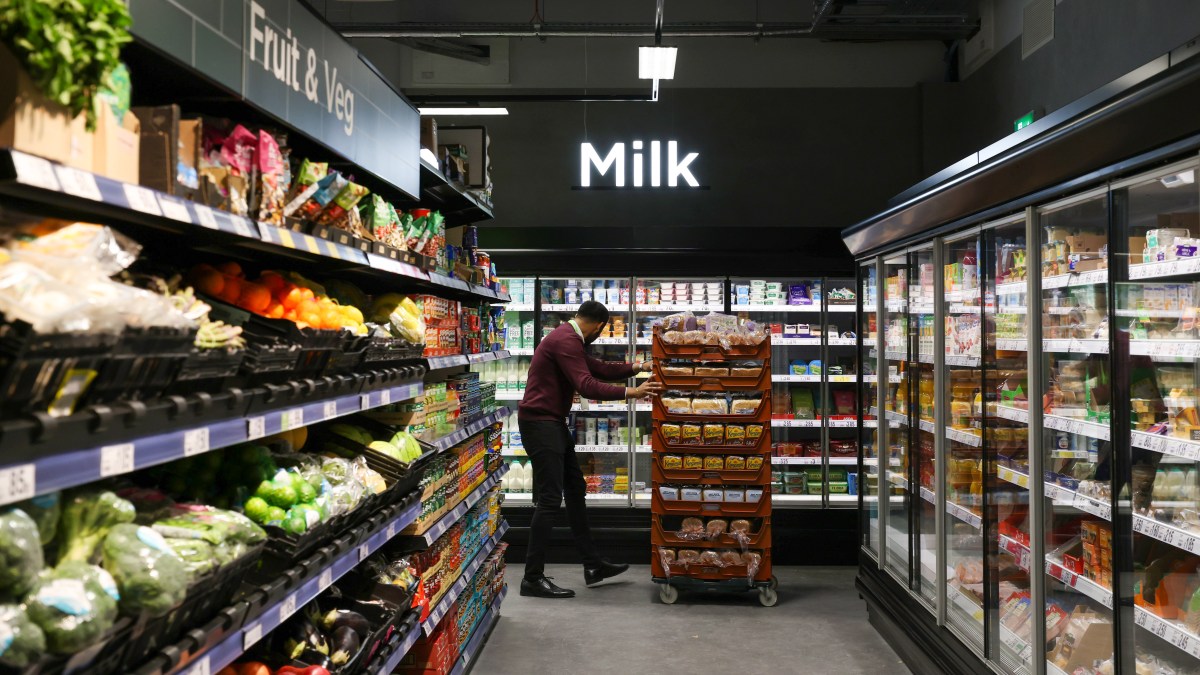The UK will suffer from the highest rate of inflation of any major economy this year, coupled with the steepest long-term government borrowing costs, the International Monetary Fund has said.
In its annual world economic outlook, the IMF highlighted the UK as one of the economies experiencing rising inflation. Consumer prices are expected to average 3.4 per cent this year, up from 2.5 per cent last year and above the Bank of England’s 2 per cent target rate.
By comparison, average inflation is expected to be 2.1 per cent in Germany, 1.1 per cent in France, and 2.7 per cent in the US, where inflationary pressures are being pushed up by tariffs.

Rachel Reeves is facing some tough decisions before the budget
AFP
Pierre Olivier-Gourinchas, chief economist of the IMF, said there was a risk inflation could remain high and not fall as expected next year. He highlighted “increased labour costs” – in the form of higher payroll taxes, and data showing a rise in inflation expectations as factors that could keep price pressures high. Rising inflation expectations are “a sign that households and firms are becoming less certain that inflation is coming down
The Bank of England should be very cautious in its easing trajectory”, Gourinchas said.
The IMF said CPI inflation would fall back to 2.5 per cent next year after a series of regulated price hikes — for water, energy and other utility bills — fall out of the annual inflation measure.
The current spike in inflation “is projected to be temporary, with a loosening labour market and moderating wage growth eventually helping inflation return to target at the end of 2026”, the Washington-based fund said.
The IMF upgraded its UK growth projection by 0.1 percentage point to 1.3 per cent of GDP this year and reduced its forecast by 0.1 percentage point for next year, to stabilise the rate at 1.3 per cent.
However, the UK’s growth prospects are 0.4 percentage points worse off than the IMF’s projections last autumn, which were made before Rachel Reeves’s maiden budget and the election of President Trump.
The 1.3 per cent GDP growth this year will be the second fastest in the G7 and up from the 1.1 per cent estimate the IMF gave in April. The chancellor welcomed the projection as the “second consecutive upgrade to this year’s forecast from the IMF”.
“Britain led the G7 in growth in the first half of this year and average disposable income is up £800 since the election,” Reeves said. “But I know this is just the start. For too many people, our economy feels stuck. Working people feel it every day, experts talk about it and I am going to deal with it. Working together, we can deliver a Britain built for all.”
• UK inflation to be highest in G7 this year, OECD warns
Worries about sticky inflation, high interest rates, sluggish growth and the difficulty of raising taxes have pushed up the UK’s long-term borrowing costs this year. They are are now higher than in the US, Japan and the eurozone.
The IMF said: “The overall rising cost of borrowing is a reason for concern — particularly given the significant refinancing requirements, as a share of GDP, for some of the largest economies.”
The fund said the UK economy had been given a small boost from the government’s partial tariff agreement with the United States, but it added that British exports to the US had already fallen “notably” since April, when the Trump administration announced a raft of import levies on its trading partners.
Despite the UK-US agreement, which limits tariffs on steel, aluminium and car imports, the effective tariff rate applied on UK goods has risen from an average of just below 2 per cent in 2024 to 10 per cent in the coming months. The effective tariff rate is calculated by measuring how much revenue is raised at the customs border, divided by the volume of imports from any single country.
• Unemployment rate rises to 4.8%, wage growth cools
“Reliance on ad hoc bilateral deals for trade negotiations, which erode previous agreements and whose details and longevity remain unclear, would not meaningfully reduce trade policy uncertainty,” the IMF said. “If such deals are coupled with further discriminatory measures against third countries, they may generate additional negative spillovers and tit-for-tat dynamics.”
US growth projections were raised by 0.1 percentage point this year and next, to 2 per cent in 2025 and 2.1 per cent in 2026. This is down from the annual 2.8 per cent expansion recorded before Trump’s election last year.

